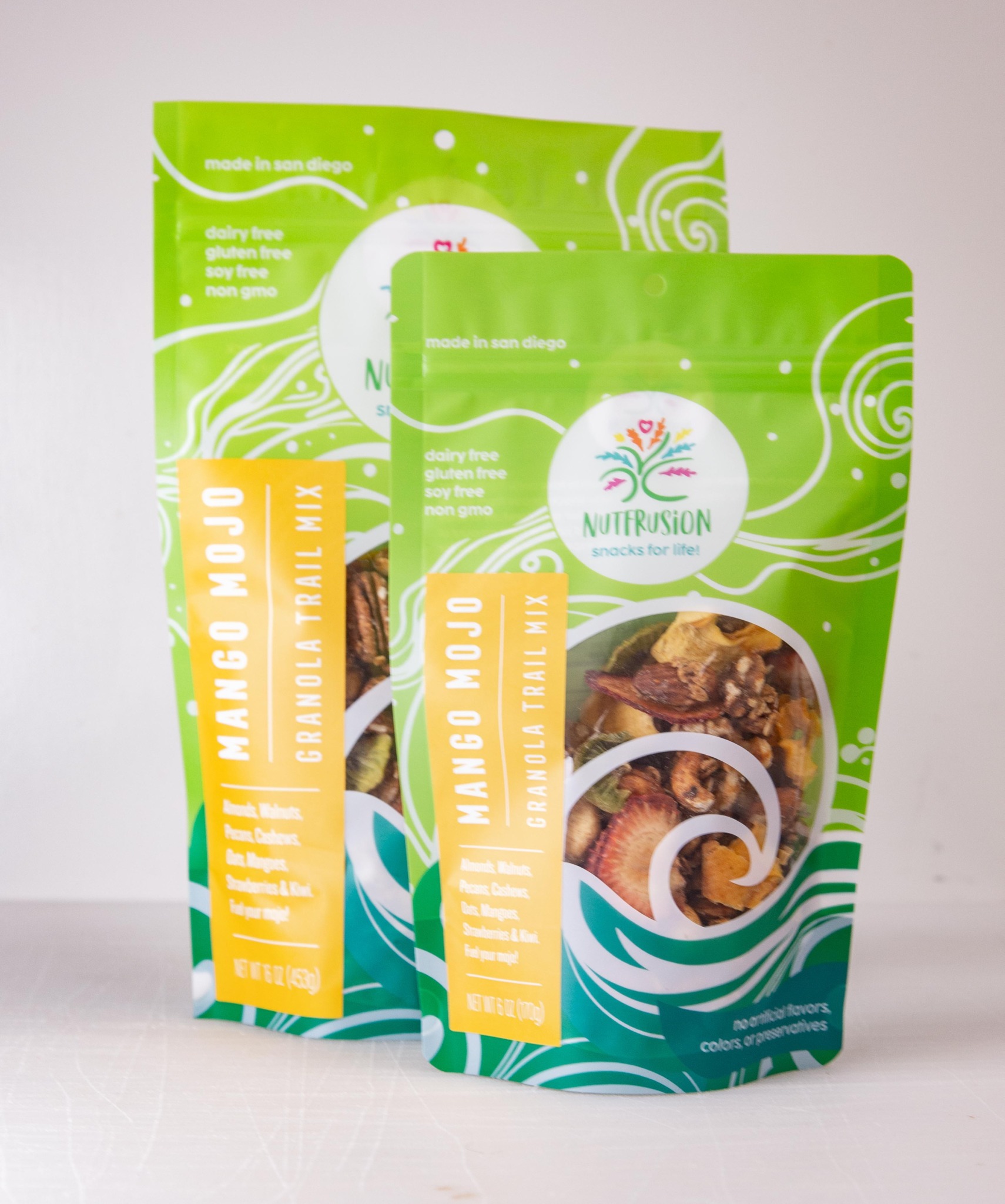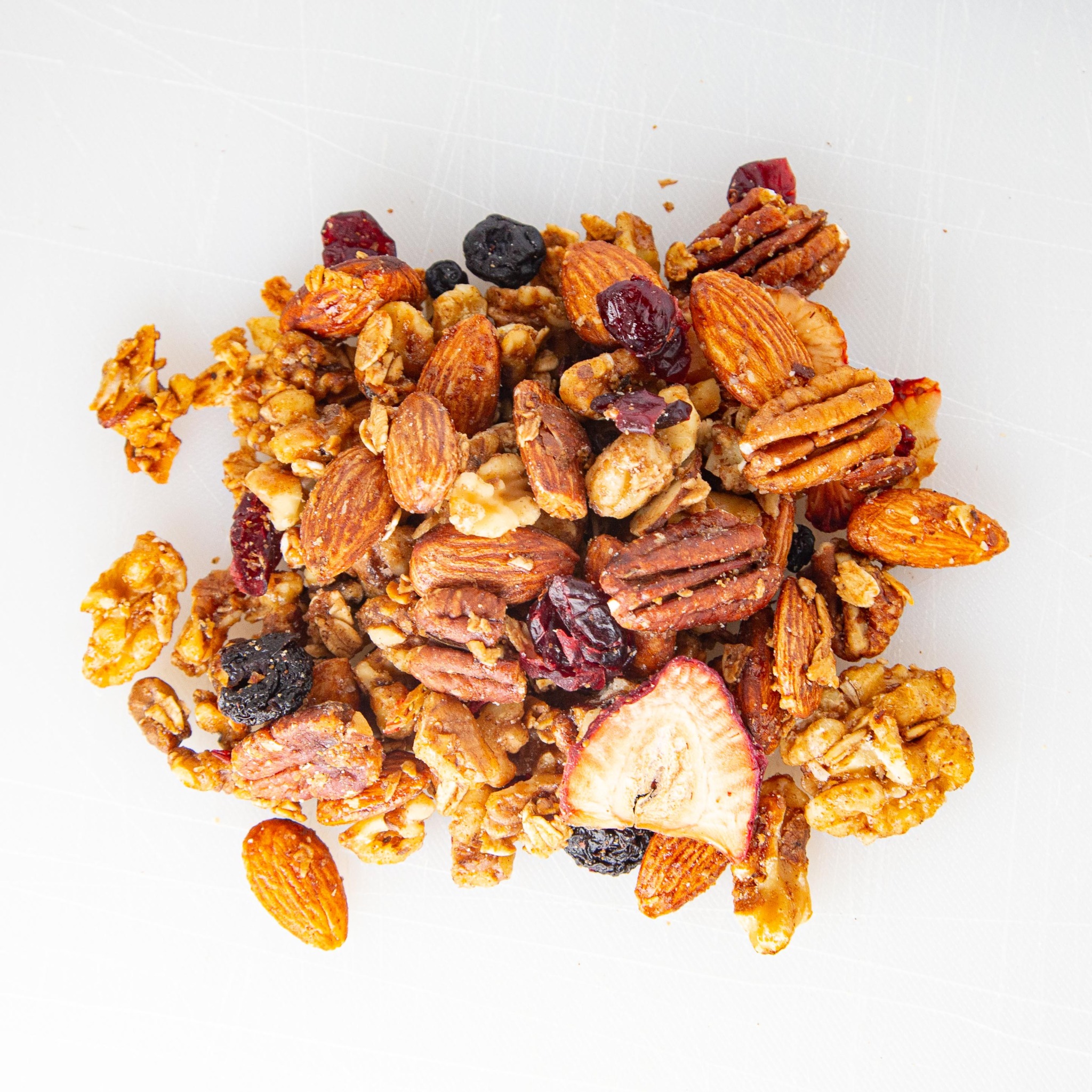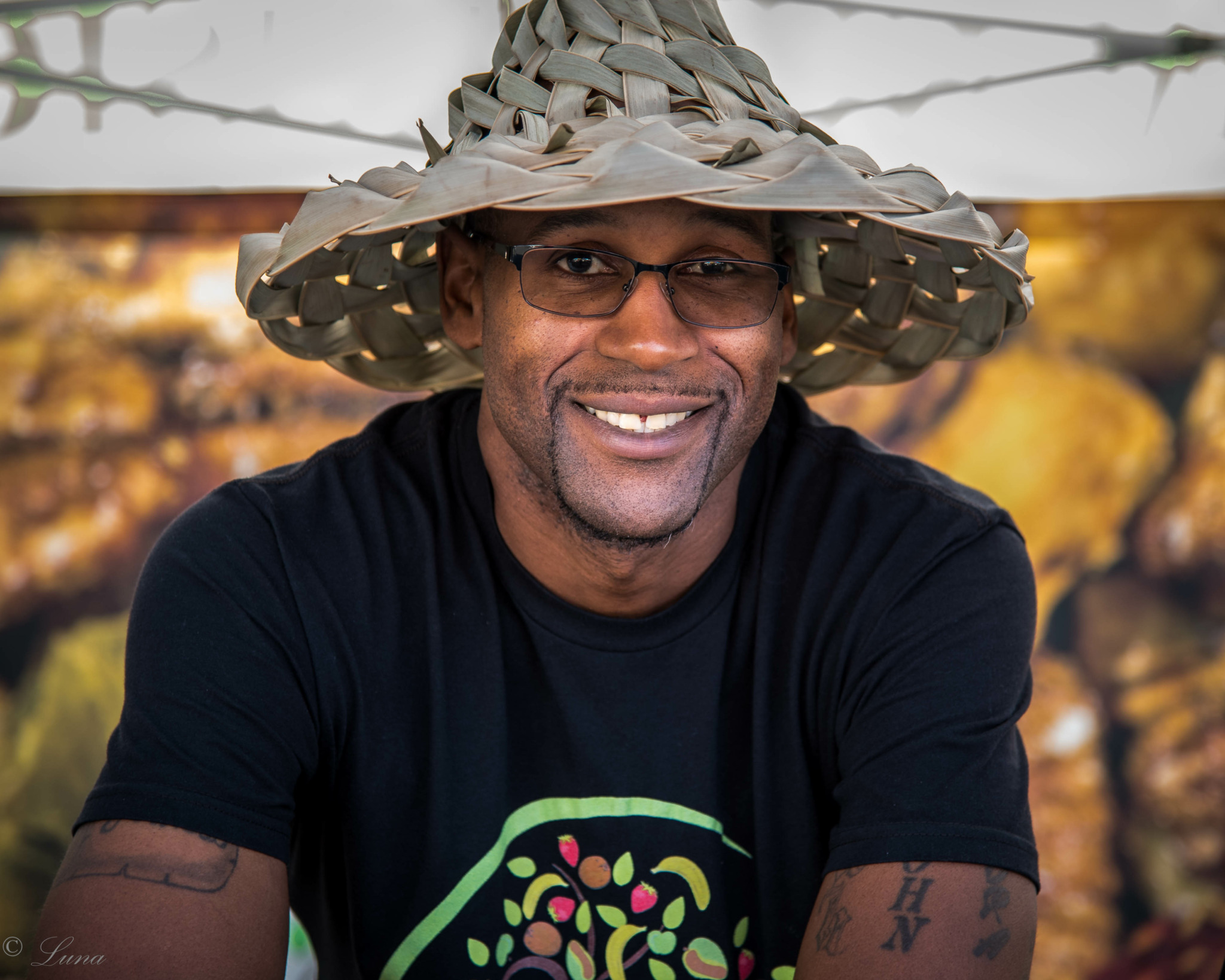We were lucky to catch up with Tahnohn Hayes recently and have shared our conversation below.
Tahnohn, looking forward to hearing all of your stories today. What’s the backstory behind how you came up with the idea for your business?
How I Turned My Diagnosis into a Mission: The Story Behind NutFrusion
I never planned to start a snack company — I was just trying to stay alive and feel human again.
I was diagnosed with multiple sclerosis while serving in the Navy, only two days after my wife — also in the Navy — had boots on the ground in Afghanistan. She had just arrived to begin her deployment, and I was at home caring for our young daughter, who was still in daycare at the time. It was just the two of us when I got the call. Having to share that diagnosis with my wife while she was thousands of miles away, focused on her mission, was one of the hardest things I’ve ever had to do.
From that moment on, everything changed. My choice was simple but heavy: try to stay in and risk being discharged if I couldn’t perform all of my duties, or take a medical retirement and leave early. I chose to fight through it for as long as I could. But every day was a struggle. Thank God I was on shore duty at the time, which allowed me to finish my career and retire from shore duty. I didn’t have to go back to a ship and try to perform the harder tasks of deployment.
I lived in constant pain. I wore a TENS unit to control muscle spasms, took medication daily, and couldn’t regulate my body temperature. I was constantly overheated, so I had to wear a cooling vest filled with ice packs just to function. When I was in uniform, I wore a special version soaked in water and frozen overnight — the fabric froze stiff, then thawed slowly throughout the day to keep me from overheating. Add in all the therapy gear, and I was carrying a lot just to get through a normal day. One of my co-workers even joked and called me “Robo Bro” because of all the devices and equipment I had strapped on to manage my symptoms.
Eventually, I was taking 72 pills a week and three injections, but my condition wasn’t improving. I was exhausted and frustrated. That’s when I met a dietician who completely changed my life. She told me, “It’s not the illness that’s making you sick — it’s the food you’re eating.”
That one sentence became a turning point. I took the Mediator Release Test to identify which foods my body could handle, and after changing my diet, everything shifted. I lost 25 to 30 pounds — without working out — and my body temperature finally started to regulate. The pain eased up, and for the first time in years, I began to feel normal again. I no longer needed to take all the pills or rely on so many medications just to make it through the day, and I didn’t have to carry around all that equipment or wear the cooling vest as often. Now I only need it in semi-extreme conditions — around 78 degrees and above — when I’m outdoors and not working, just to get a bit of relief from higher temperatures.
The diet change wasn’t easy for anyone. I was very strict with it — I didn’t want to take any chances. When my family wanted to eat out, I’d study restaurant menus ahead of time and realize there was often nothing I could eat. I’d call the restaurant in advance, explain my restrictions, and ask if I could bring my own food for them to plate alongside everyone else’s meals. Most places were surprisingly accommodating and even went out of their way to make it feel normal for me. But it wasn’t always simple — some restaurants couldn’t do it, and we just avoided those. It made spontaneous outings tough. If nothing else worked, I’d just order a salad and make the best of it.
But eating “clean” also meant giving up nearly all the snacks I loved. So I started experimenting in my kitchen, determined to make something healthy that didn’t taste like it — something indulgent, crunchy, and full of flavor.
During my Navy years, I’d often snack on granola or nuts during watches on board ship. They were easy to carry, kept me full, and helped me stay fit. So I went back to that idea. I created a mix using the few foods my body could tolerate — apples, pecans, walnuts, oats, and a touch of cinnamon. That became my first blend, Sweet Apple Pecan (now called Apple Pecan).
At the time, I was working as a defense contractor, and everyone in the office knew the rule: if it’s open and on your desk, it’s fair game. My coworkers kept eating my snacks until I finally said, “Alright, if you’re going to eat them, I’m charging you.” They didn’t mind — they wanted more. That’s when I realized I was onto something.
That spark turned into NutFrusion — a brand built on the belief that food can be both clean and craveable. I signed up for my first farmers market in Eastlake, and people connected instantly with the story, the flavor, and the purpose behind every bag.
For me, NutFrusion isn’t just a business — it’s a mission. I wanted to prove that better-for-you snacks don’t have to taste bland or boring, and that changing what’s on your plate can truly change your life.
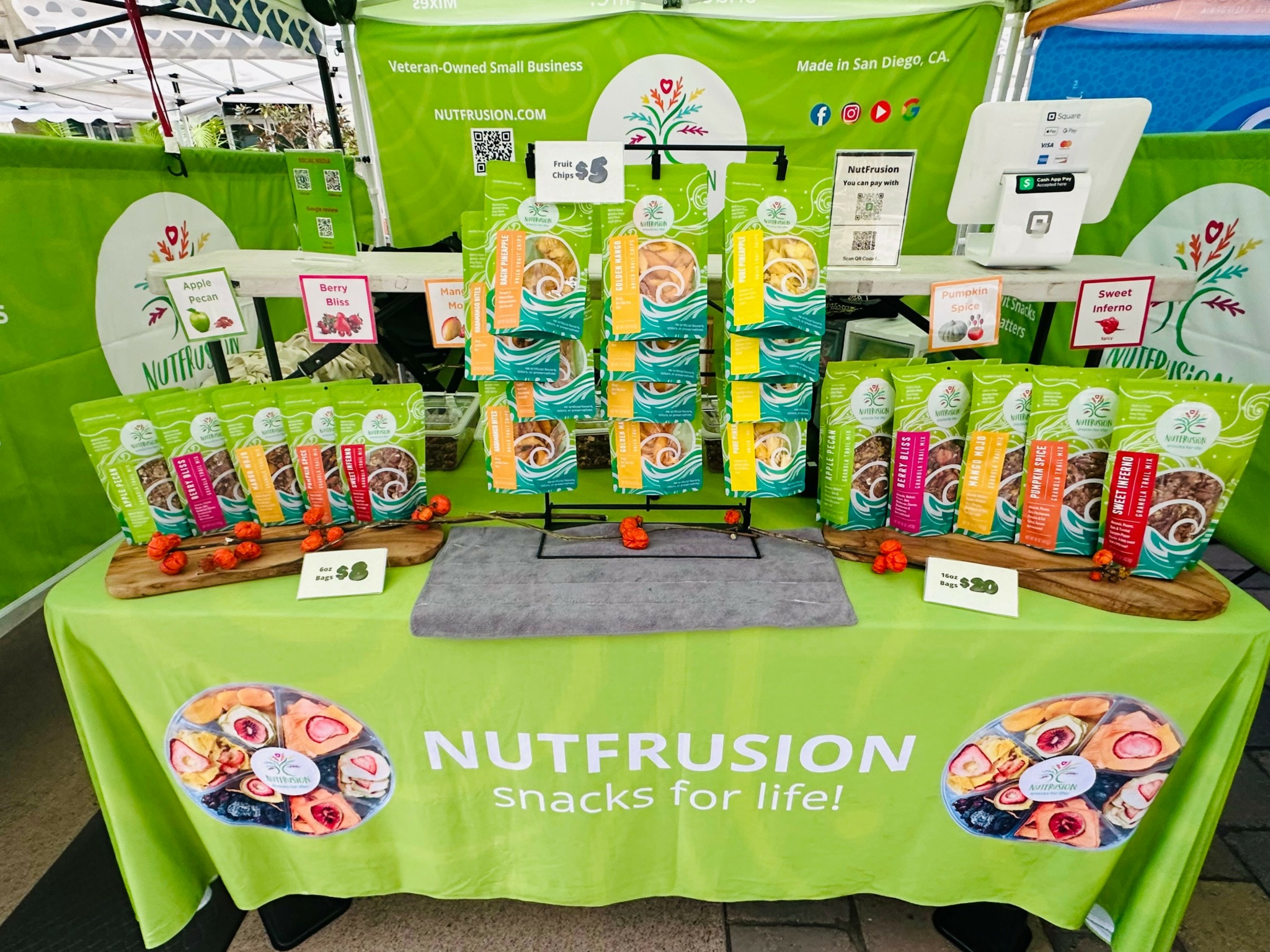
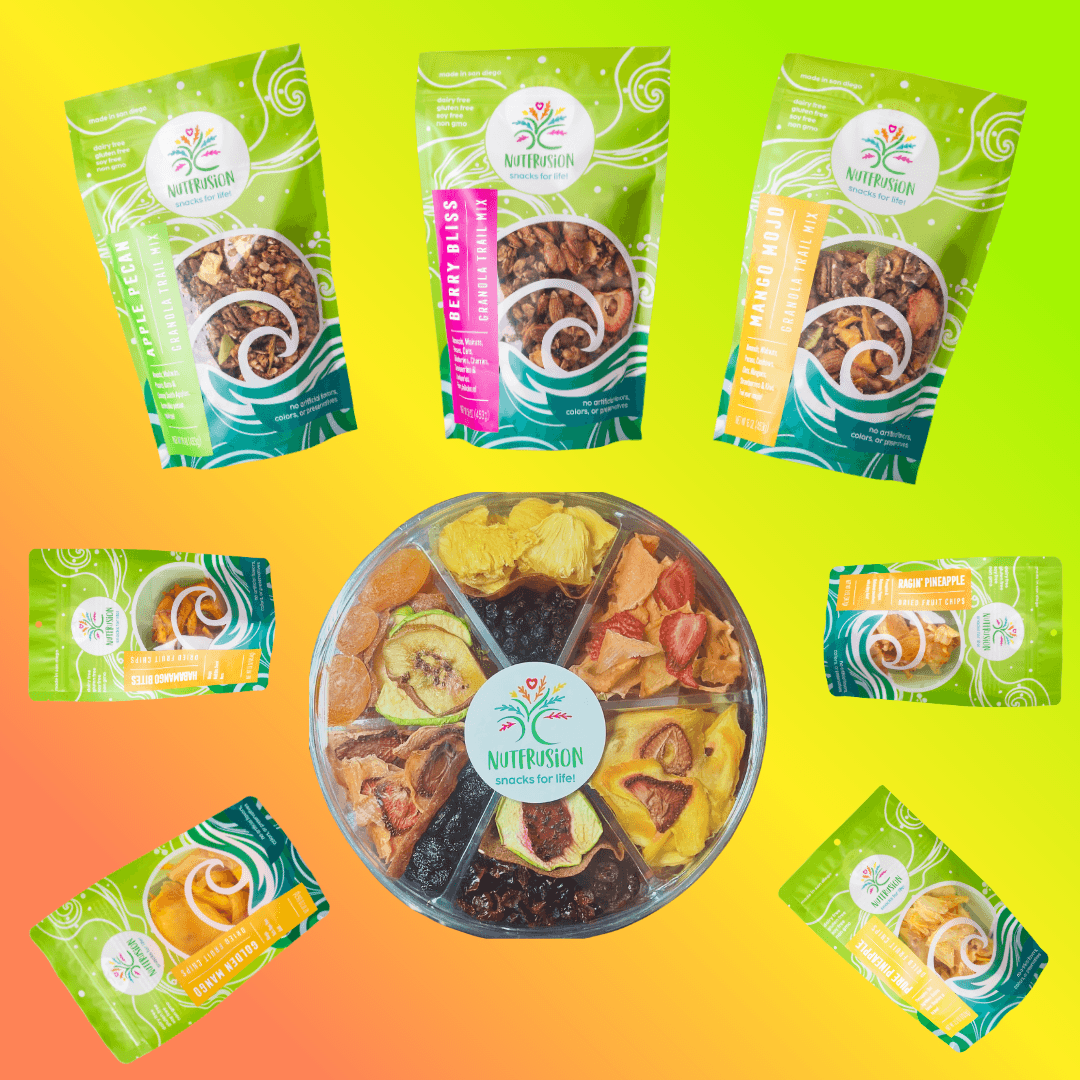
Awesome – so before we get into the rest of our questions, can you briefly introduce yourself to our readers.
I’m the founder and owner of NutFrusion, an artisanal snack company crafting premium trail mixes and fruit chips made with clean, simple ingredients and bold, craveable flavor.
My path to this business began as a personal fight for my health. While serving in the Navy, I was diagnosed with multiple sclerosis. I spent years managing the pain and symptoms through medication and equipment until a dietician helped me understand how the food I was eating was affecting my body. Once I changed my diet, my health transformed — I lost weight, reduced my medications, and finally felt human again. That experience inspired me to reimagine what “healthy snacks” could be.
I started NutFrusion to make snacks that are healthy, but don’t taste like it — snacks that are made with ingredients you can trust and flavors you crave. Each mix is handcrafted in small batches using high-quality nuts, fruits, and natural glazes like honey or maple syrup. We also make single-ingredient fruit chips with no added sugar or preservatives, giving people a clean, naturally sweet option they can feel good about.
Our products are dairy-free, soy-free, gluten-free, and peanut-free, and we never use artificial additives or preservatives. What makes NutFrusion stand out is the balance of nutrition and indulgence — a mix of wholesome ingredients and bold flavors that truly satisfy. Every recipe tells a story, from the fan-favorite Berry Bliss to Apple Pecan, the flavor that started it all.
I’m proud that NutFrusion has grown from a small farmers market stand into a brand recognized for both its taste and mission. We’ve partnered with hotels, local schools, and community organizations, and I was honored to be a nominee for the 2025 SBA Diverse-Owned Small Business of the Year.
At its core, NutFrusion is more than a snack brand — it’s proof that changing what you eat can change how you live. My mission is to inspire others to take control of their health, one bite at a time, and show that clean food can still be full of flavor, joy, and life.
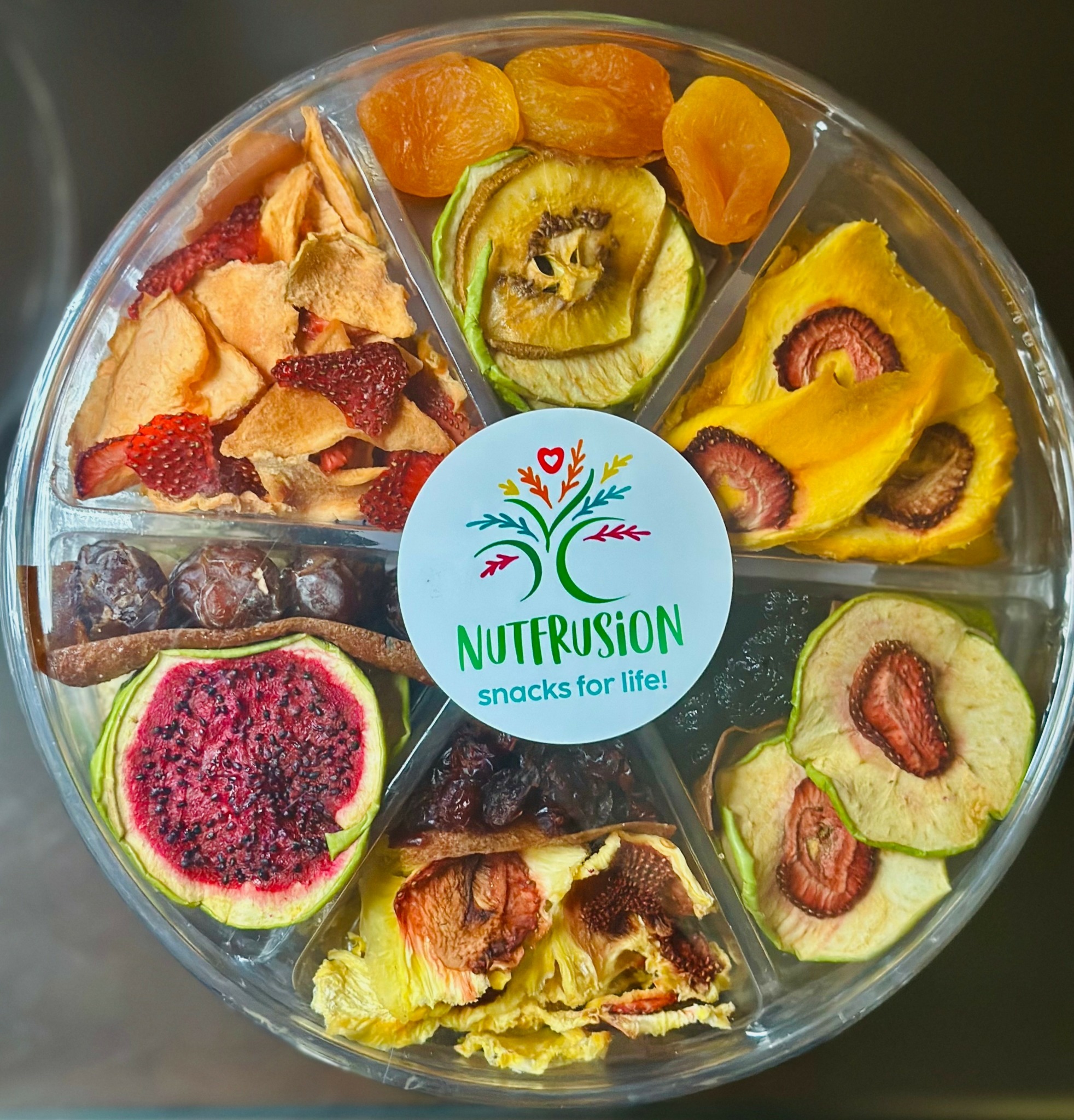
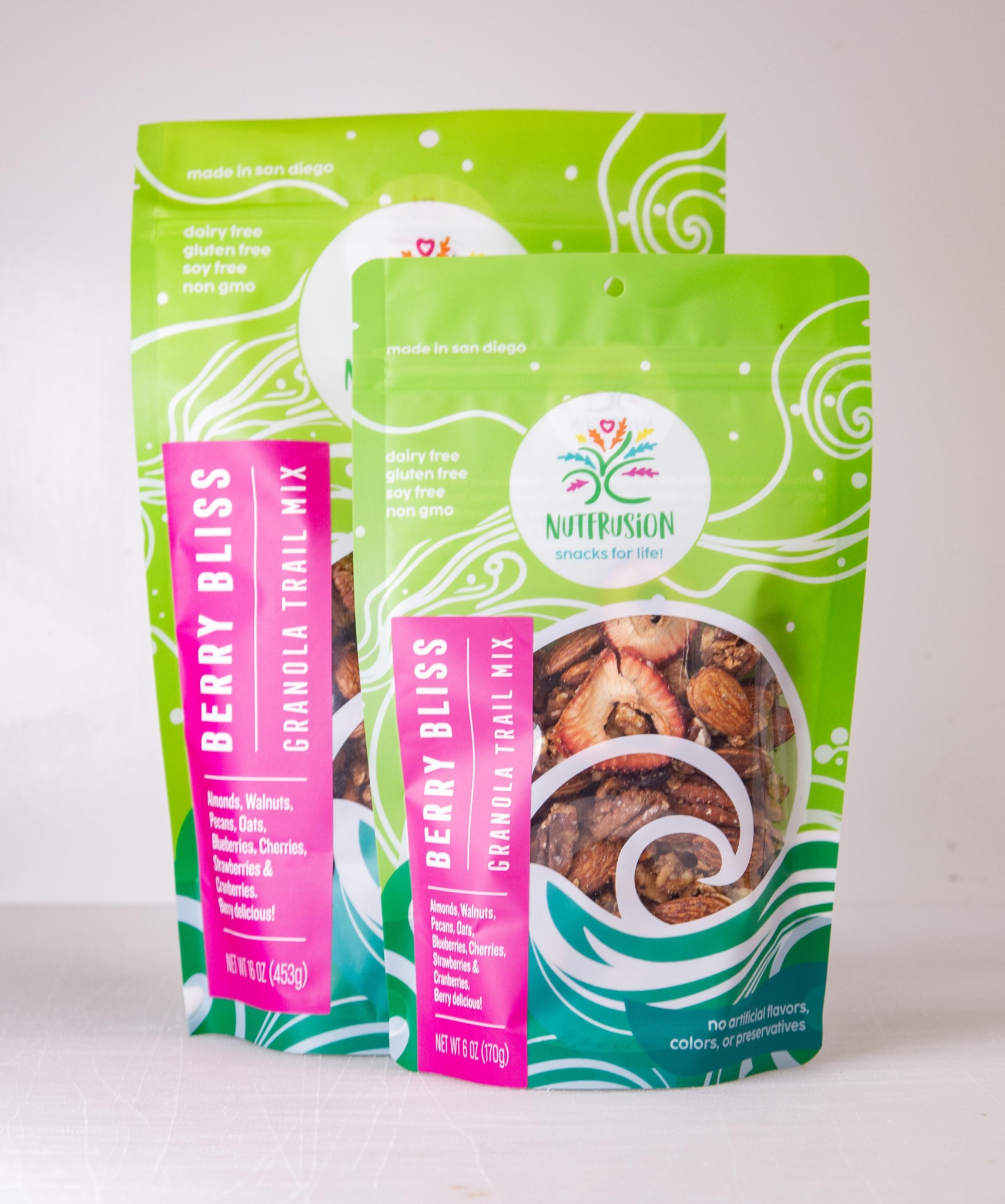
Let’s talk about resilience next – do you have a story you can share with us?
For me, pivoting and resilience go hand in hand. It’s not something that happens once — it’s something I’ve had to live over and over, in both life and business.
The first major pivot came after I was diagnosed with multiple sclerosis. I went from being an athletic, active person to struggling with fatigue, muscle spasms, and pain that made even everyday tasks difficult. I had to completely rethink how I lived — from how I worked to what I ate. Changing my diet was one of the hardest pivots of my life, but it gave me my health back and eventually led to the creation of NutFrusion.
Then came another major pivot — COVID-19. At the time, about 98% of our revenue came from farmers markets. We were a face-to-face business; that’s where we connected with customers, told our story, and built relationships. But when COVID hit, everything shut down overnight.
We had an online store, but it wasn’t strong enough to carry us. So, we had to figure things out fast. The one thing that worked in our favor was that from day one, we had been collecting customer emails at the markets. That became our lifeline. We used it to stay connected and keep serving our customers. We improved our website, built a subscription service, and found a way to deliver NutFrusion right to people’s doors.
We also launched a GoFundMe campaign, not to save the business, but to give back. Every dollar we raised went toward buying products we donated to local fire departments, dialysis centers, emergency rooms, and Rady Children’s Hospital for their medical staff. We wanted to show up for the people who were risking their lives to help others.
But my biggest personal pivot came after I suffered a major seizure at the farmers market a few years ago — one that left me hospitalized for days and eventually without my sense of taste or smell.
Before that, I had been on the strongest medication available for multiple sclerosis at the time — two powerful infusions a year, one every six months. It had reduced the need for constant medication and weekly injections, and for a while, it helped slow the progression. But eventually, I experienced a breakthrough while on that treatment, and that’s what led to the seizures.
Afterward, my doctors and I decided to take a bold step: a stem cell transplant. It was my chance to try to stop the disease from advancing once and for all, and I met all the requirements to qualify.
The VA sent me to Seattle for the procedure, which was a three-month process. The first trip was during Christmas, so my family came with me. They stayed at a nearby hotel while I went back and forth between treatments and the hospital. We tried to make the best of it, but partway through the trip, my kids got sick at a trampoline park and tested positive for COVID. Around the same time, I started feeling intense pain in my back. When I saw the doctor, they told me I had fluid in my left lung — pneumonia caused by COVID.
Because of that, we all had to quarantine in the hotel until we were cleared to fly back to San Diego. Once we returned home, I had to wait until a doctor confirmed that my lungs were clear and healthy enough for the transplant. When I was finally cleared, my wife and I returned to Seattle to focus on the treatment.
I stayed active during that time — I was allowed to walk around the hospital, so I’d go down to the basement and put in one to two miles a day whenever I was strong enough. But then it got to the point where I couldn’t eat or hold food down, so they placed me on an IV for nutrients during the chemo process. I couldn’t walk much then, and I started jokingly calling my IV stand “Poli.” I had to walk around with Poli all day until I was finally able to start eating and keeping food down again.
The chemotherapy and recovery process were extremely difficult — physically, mentally, and emotionally. Hospital food was tough with my dietary restrictions, so my wife cooked meals in the hotel kitchen and brought them to me. We got creative, experimented, and did whatever it took to get through it. I’m so grateful she was there with me during that time. I thought I could do it by myself, but she insisted on coming — and I don’t think I would’ve made it without her.
And we did. We made it through.
That experience reminded me that resilience isn’t about avoiding challenges — it’s about enduring them with faith and purpose. Every time life pushes back, I find a way to adapt. Whether it’s pivoting a business in a pandemic, creating new recipes without taste or smell, or rebuilding my health one cell at a time — I keep moving forward.
Because for me, resilience isn’t just about survival. It’s about living with intention, giving back, and trusting that every obstacle can become part of your purpose.
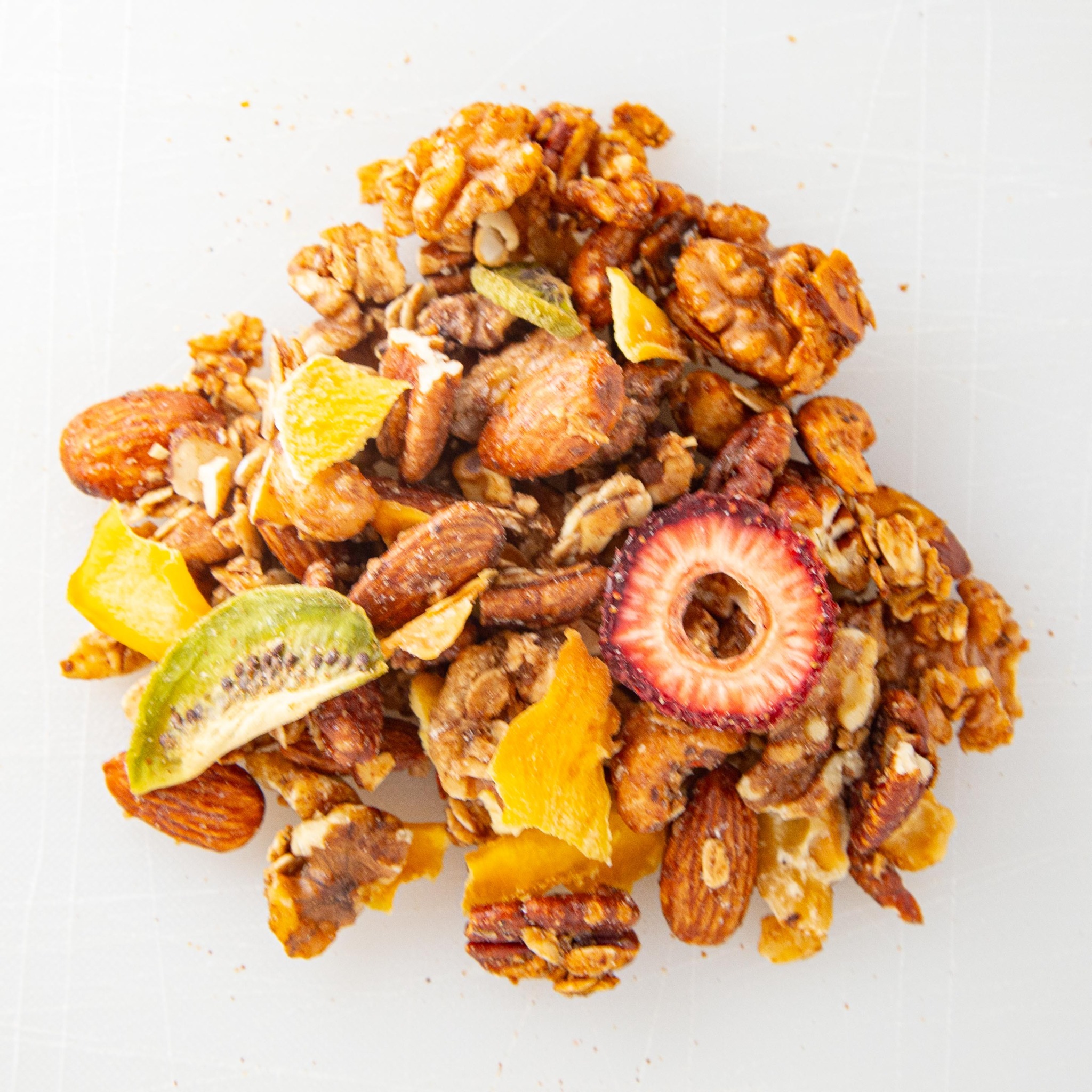
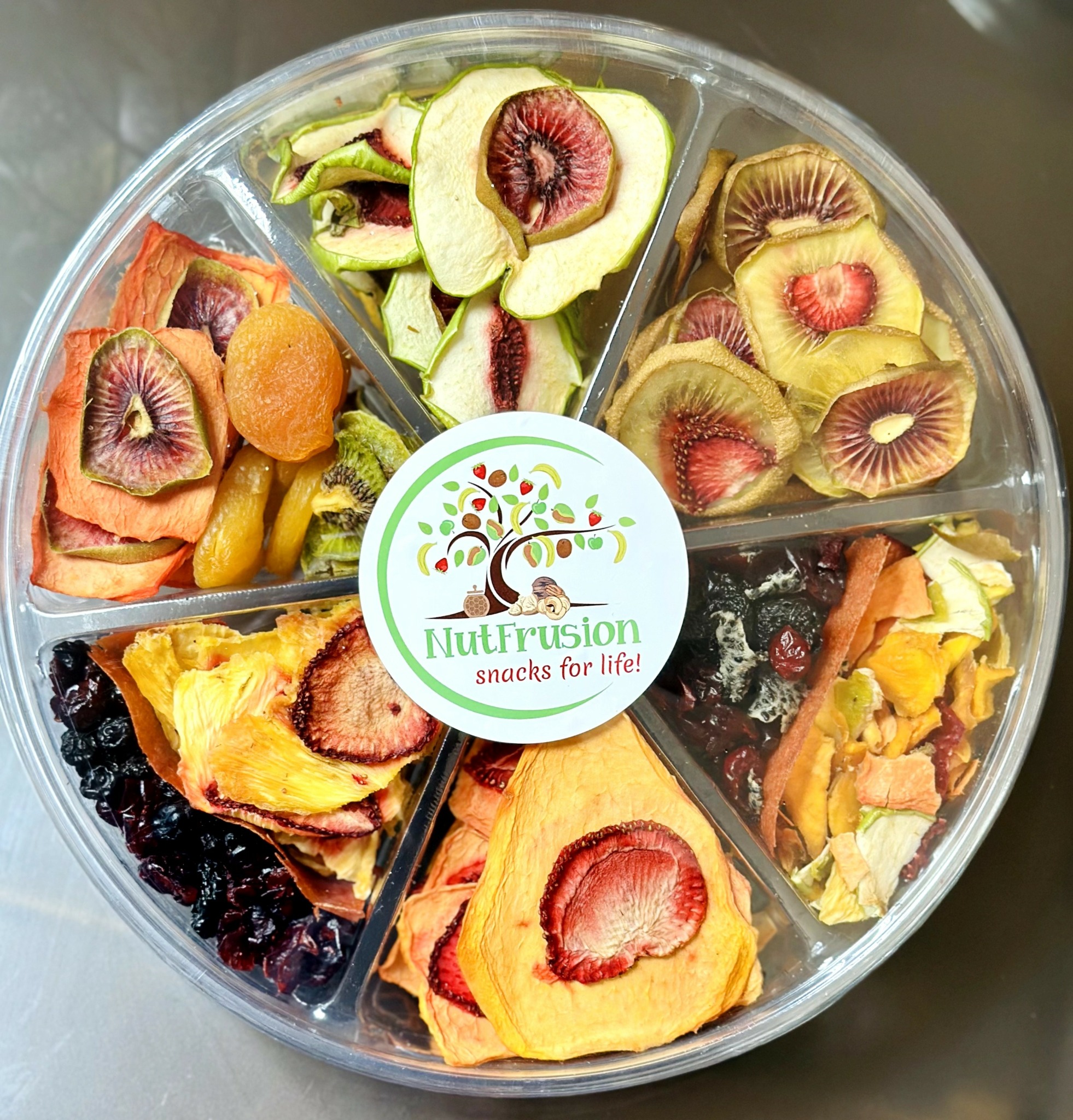
How about pivoting – can you share the story of a time you’ve had to pivot?
For me, pivoting has never been a one-time thing — it’s been a constant part of my journey, both in life and in business.
The first major pivot came after I was diagnosed with multiple sclerosis. I went from being an athletic, active person to struggling with fatigue, muscle spasms, and pain that made everyday tasks difficult. I had to completely rethink how I lived — everything from how I worked to how I ate. The diet change that saved my health was one of the hardest pivots of my life. I had to give up almost everything I was used to eating and rebuild my diet from scratch. But that change gave me my health back and eventually led to the creation of NutFrusion.
Then came another major pivot — COVID-19. At that time, about 98% of our revenue came from farmers markets. We were a face-to-face business; that’s where we connected with customers, told our story, and built relationships. But when COVID hit, all the markets shut down overnight. It was like someone flipped a switch and everything stopped.
We had an online store, but it wasn’t strong enough to carry us. So, we had to figure it out fast. One thing that worked in our favor was that from day one, we had been collecting customer emails at the markets. That gave us a lifeline — we could still reach out, share updates, and keep that personal connection alive.
We started improving our online presence, strengthening our website, and building a subscription service for our repeat customers. If they couldn’t meet us at the market, we could meet them halfway and send NutFrusion directly to their homes.
But we didn’t stop there. We also launched a GoFundMe campaign, not to save the business, but to give back. Every dollar raised went toward buying products that we donated to local fire departments, dialysis centers, emergency rooms, and even Rady Children’s Hospital for their medical staff. It was our way of showing up and giving back to the people who were risking their lives every day to help others.
That season tested everything — our creativity, endurance, and faith. Competing online against big brands without a marketing budget was tough, but we learned a lot. We realized that our strength was in our community and our authenticity. And because we were still a home-based business, we were able to survive without the heavy overhead that comes with a full production facility.
In life and business, I’ve learned that pivoting isn’t failure — it’s evolution. Whether it’s finding a new way to stay healthy, to keep a business alive, or to serve others, every pivot has led me closer to my purpose.
Contact Info:
- Website: https://nutfrusion.com
- Instagram: https://www.instagram.com/nutfrusion_snacks/?hl=en
- Facebook: https://www.facebook.com/nutfrusion/
- Linkedin: https://www.linkedin.com/company/18572165/admin/dashboard/
- Youtube: https://www.youtube.com/@NutFrusion/videos?app=desktop&view=0&sort=dd&shelf_id=3
